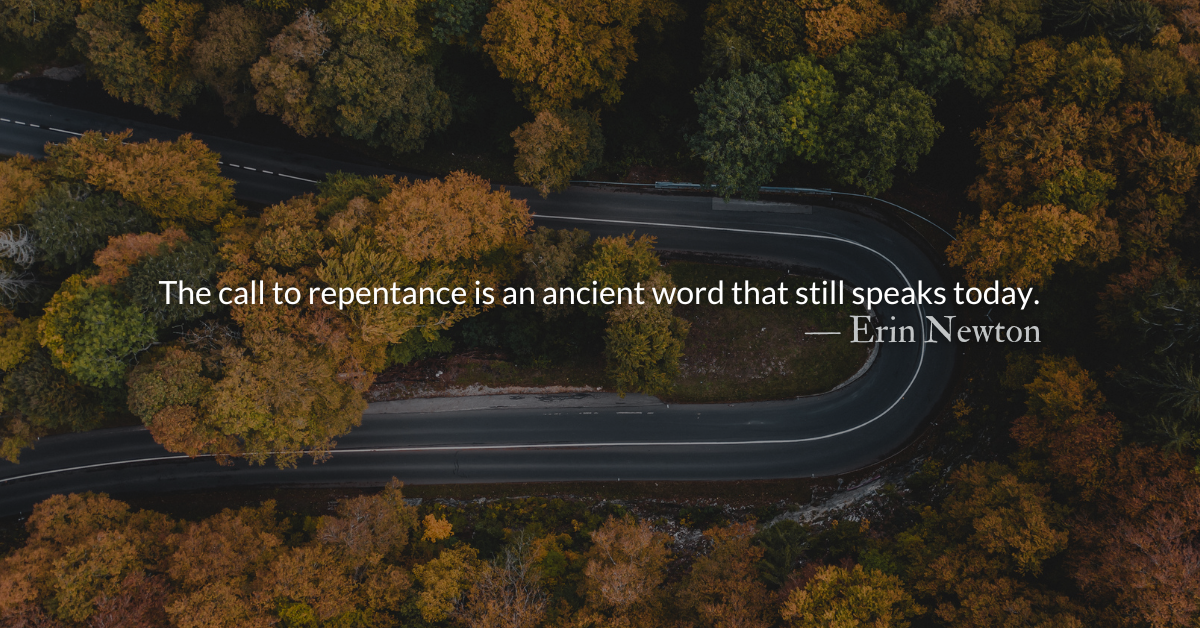Scripture Focus: Hosea 2.7-8
7 She will chase after her lovers but not catch them;
she will look for them but not find them.
Then she will say,
‘I will go back to my husband as at first,
for then I was better off than now.’
8 She has not acknowledged that I was the one
who gave her the grain, the new wine and oil,
who lavished on her the silver and gold—
which they used for Baal.
Luke 15.17-18
17 “When he came to his senses, he said, ‘How many of my father’s hired servants have food to spare, and here I am starving to death! 18 I will set out and go back to my father and say to him: Father, I have sinned against heaven and against you.
Reflection: The Prodigal Woman
By Erin Newton
As a writer, I struggle with doubt: “How can I say anything that is new?” The teacher in Ecclesiastes would say, “Yeah. There is nothing new under the sun.” Despite this reality, the Bible often reminds me that some good truths are worth repeating.
Many times in the Old Testament we see themes and stories that find a similar counterpart in the New Testament. We see similar tales of watery depths stilled at creation (Genesis 1.2, 9-10) and at the hush of the waves from the voice of Jesus (Luke 8.24-25). There are temptations in the deserts of Egypt and Israel (Exodus 16.1-3; Matthew 4.1-4). In fact, Jesus often responds to questions, “You’ve heard it said…” implying that some truths are worth telling again.
The prophets’ messages were not random, ground-breaking new realities for the people. They spoke messages that reminded people of the truth they already knew. The call to repentance is an ancient word that still speaks today.
The prophet Hosea uses the image of a wayward spouse to speak about the unfaithfulness of Israel. His message compares the divine-human relationship to a marriage. What is expected in such a relationship? Loyalty, love, commitment, and exclusivity.
Through this analogy, Israel is revealed as disloyal, unloving, uncommitted, and corrupt. The object of her wayward affection is Baal, the god of her neighbors—a deity depicted as a violent storm god engaged in wars for power. She is compelled by her lust and forgets where her substance and beauty come from.
“Well, good thing I would never be a harlot! Never would I worship an idol!” We convince ourselves that we are too sophisticated to be compared to a scandalous woman involved in idolatry.
But Jesus takes the same message and reconfigures the image. No longer is it a spousal relationship. It is father and son. It is not a woman financially dependent on a man but a son who is already destined to receive a future inheritance. It is not Baal who tempts but greed.
This story hits a little closer to home. It sounds like our own testimonies.
Both the woman and the son follow their passions instead of the Provider. Yet both are received within the arms of the one who has always loved them.
God always loved Israel. The father never stopped loving his son. Christ forever loves you.
There is always room to tell this same story—our story—one more time.
Divine Hours Prayer: The Small Verse
My soul thirsts for the strong, living God and all that is within me cries out to him.
– From The Divine Hours: Prayers for Summertime by Phyllis Tickle.
Today’s Readings
Hosea 2 (Listen 3:48)
Matthew 7 (Listen 3:31)
Read more about A Chiaroscuro Parable
Like a Rembrandt chiaroscuro painting, with exaggerated lights and darks, Hosea shows the darkness of sin and the bright, hopeful gleams of God’s love
Read more about Trouble and Hope
How does trouble turn into hope? How does the punishment of disobedience become a beacon of mercy in the wilderness?







